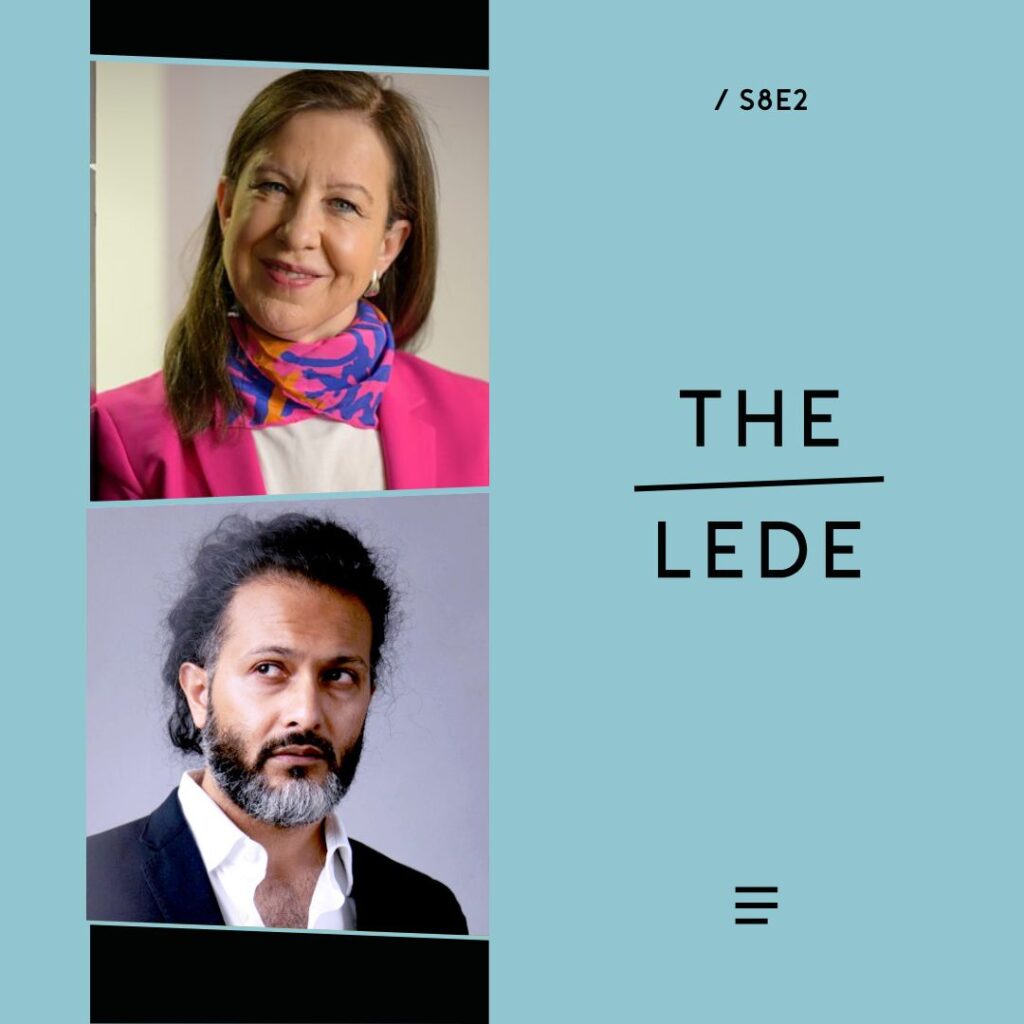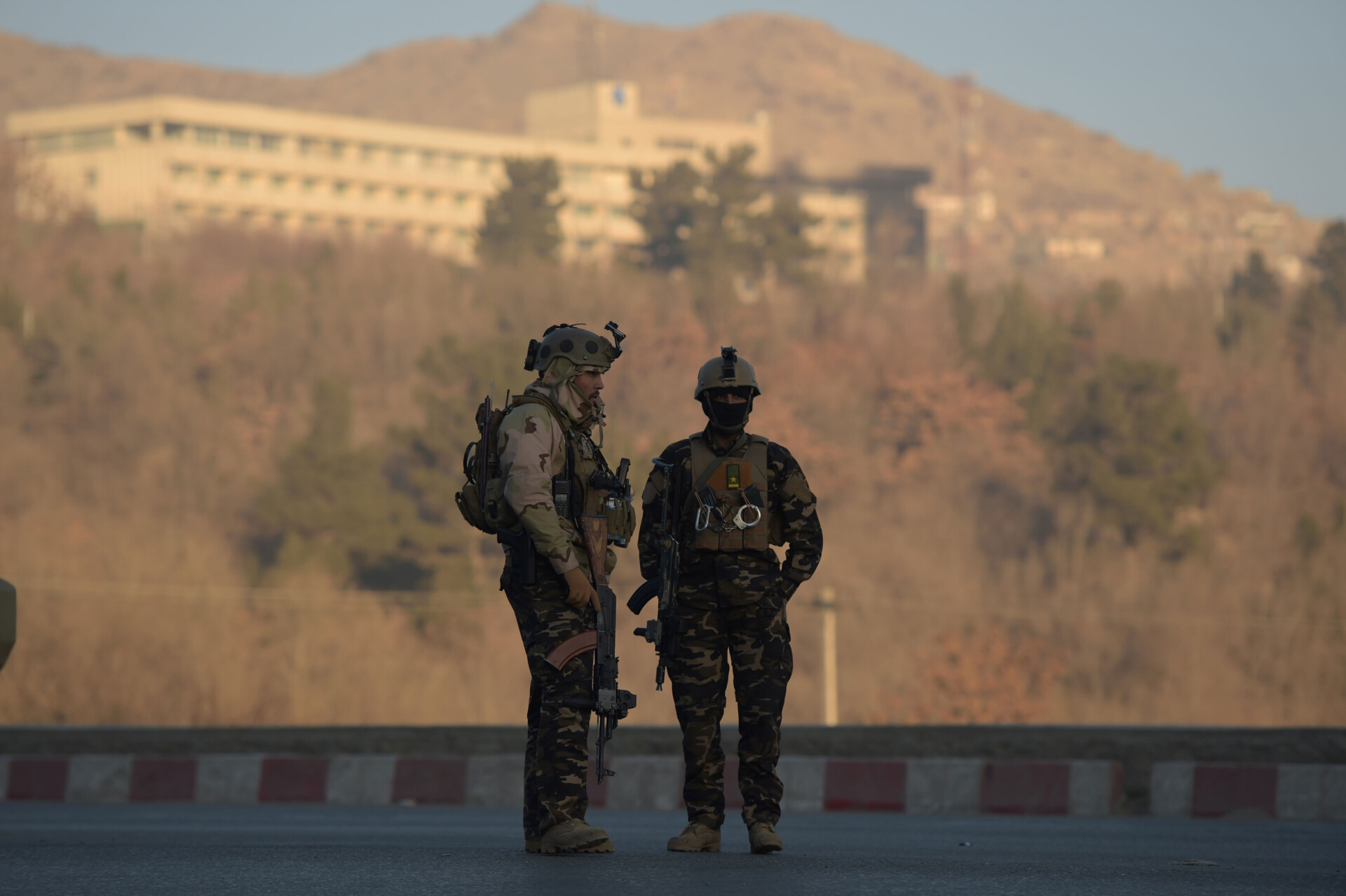Hosted by Faisal Al Yafai
Featuring Lyse Doucet
Produced by Finbar Anderson
Listen to and follow The Lede
Apple Podcasts | Spotify | Podbean
Lyse Doucet almost missed the interview with New Lines’ Faisal Al Yafai to discuss her new book on Afghanistan, “The Finest Hotel in Kabul.”
Doucet was listening to the Newshour program from the BBC, the organization she has made her professional home for so many years, when it was interrupted with a breaking news bulletin describing an airstrike by Israel on Doha, the capital of Qatar.
The veteran correspondent knew she might be called away at any time by her employer to report on the breaking story. “I always say journalism is an excuse for bad manners,” she tells Al Yafai. “It’s a joke — but not really a joke.”
“The more I looked at it, the more I thought that this hotel could be a prism to tell a broader story about Afghanistan.”

That vulnerability to the news cycle has certainly impacted on her close relationships over her decades in the industry, Doucet says. She is quick to point out, however, that “the people it impacts most of all are the people who are either under the bombs or close to the bombs.”
Four of those decades have been spent reporting on Afghanistan, a country that witnessed profound political changes during that time — most recently with the Taliban takeover of the country in 2021. Doucet has felt her audience’s attention on the country slipping.
“We all as journalists have had to think of new ways of storytelling. So I decided I had to find a way to be ahead of the curve,” she says. The result was “The Finest Hotel in Kabul,” which describes those changing years from the perspective of the characters that populated the Intercontinental Hotel, which Doucet made her home whenever she was in Kabul.
“The more I looked at it, the more I thought that this hotel could be a prism to tell a broader story about Afghanistan,” she sats. “History literally lived within its walls, and it’s still there in the bullet holes and the marble floor in the restaurant where there was a suicide bombing.”
Al Yafai wonders whether this might lead to a view of Afghanistan too narrowly focused on its capital, bypassing the violence taking place in the provinces, but Doucet responds, “The hotel was also being attacked by the Taliban. People were living in fear on the streets of Kabul, so it was not entirely different.”
Al Yafai and Doucet move on to some of the other stories that Doucet has covered through her long career, not least the Gaza war, which has proved a lightning rod for controversy directed at the BBC.
“The BBC, because it’s big and it’s a public broadcaster, does come under huge criticism,” she says. “Our job is to report on all sides. I have no hesitation in taking the side of innocent children, of innocent hostages. Those are the people who are suffering in profoundly painful ways.”


